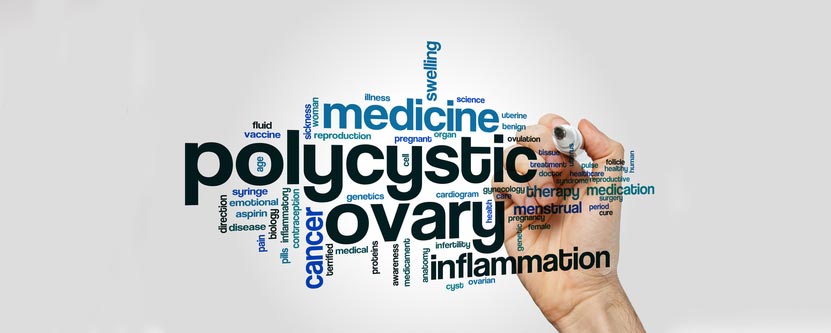The symptoms of PCOS (Polycystic Ovary Syndrome) usually start soon after the first menstrual period.
[the_ad id=”14222″]
The type and severity of the symptoms vary from person to person. The most common symptom of PCOD is irregular periods. The severity of PCOS symptoms appears to be largely determined by factors such as obesity.
So, what happens to women with PCOD/PCOS as they age? Firstly, it doesn’t mean that your life is over. There are a lot of things you can do to stay healthy, thus minimizing the risk of developing complications such as blood sugar, heart disease, high blood pressure during pregnancy and high cholesterol, as you age.
Good nutrition has a powerful impact on a person’s health. It’s easy-to-follow and requires only simple lifestyle modifications.
The signs and symptoms of PCOS may vary, but some of the most common PCOS symptoms are-
- Irregular periods or no periods
- Excess hair on the face, chest, stomach, thumbs or toes
- Ovarian cysts
- Infertility
- Decrease in breast size
- Thinning of hair
- Deeper voice
- Skin conditions like acne, patches of thick, dark or velvety skin
- Weight gain and obesity
- Pelvic pain
- Anxiety or depression
- Fatigue
- Insomnia
- Headache
Type 2 symptoms include:
- Type 2 diabetes or prediabetes, high blood pressure and cholesterol
- Heart diseases
- Mood disorders
- Endometrial cancer
Trying to figure out the root cause of the above-mentioned PCOS symptoms can be difficult. When it comes to the issue of anxiety, the difficulty is more as PCOS is linked to anxiety in many ways. For instance, irregular periods, disturbed sleep, abnormal weight gain, hair growth and acne can all cause anxiety.
Besides this, PCOS symptoms can cause a great deal of physical and emotional stress in a woman’s life. Put an end to this suffering and manage PCOD/PCOS the natural way!
Source:

